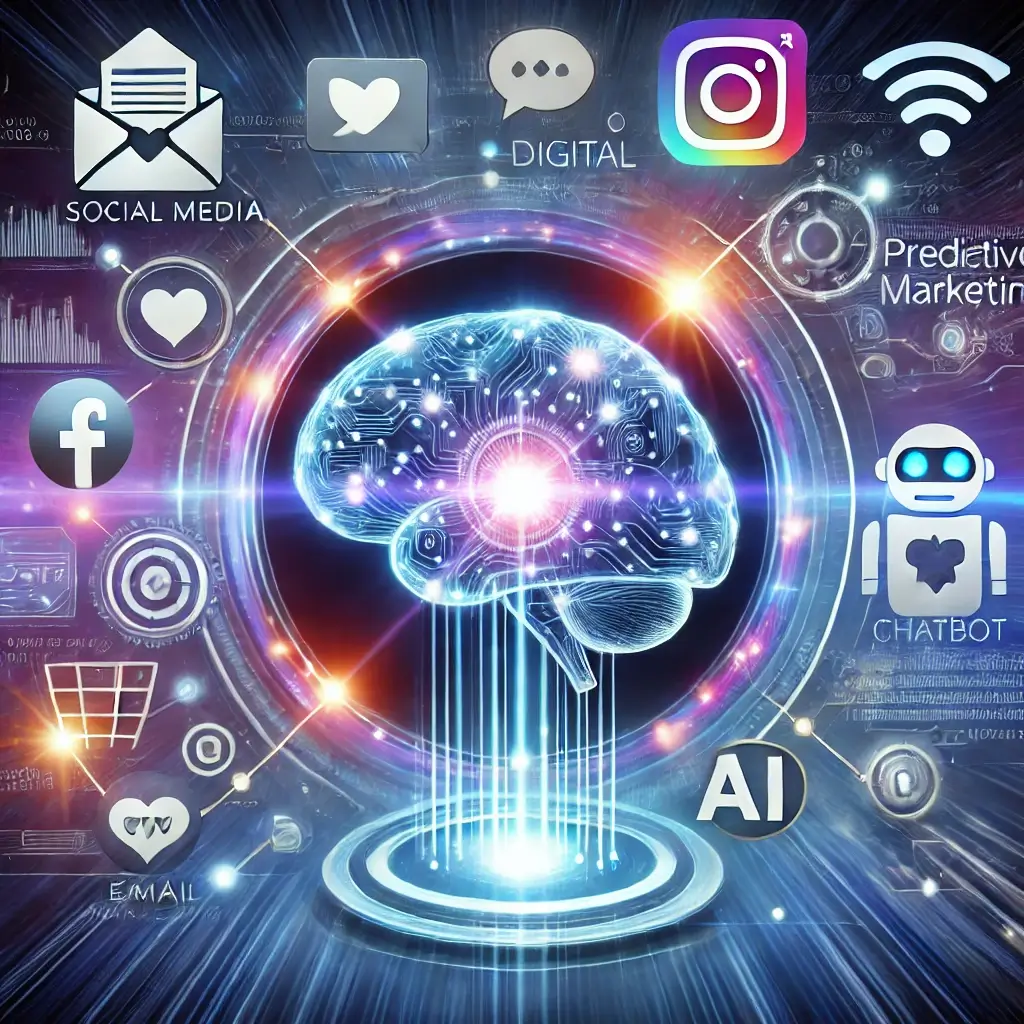Digital Consumer Expectations
The expectations of today’s digital consumers have reshaped marketing norms, making personalization a prerequisite rather than a luxury. Artificial intelligence (AI) is at the heart of this transformation, enabling brands to craft bespoke experiences that resonate deeply with individual users. According to Statista (2024), 80% of consumers are more likely to interact with brands that deliver personalized content. By 2025, AI-driven personalization is predicted to become the gold standard, creating opportunities for marketers to innovate and excel.
Essential AI Adoption
For businesses aiming to thrive in this dynamic environment, it is essential to adopt AI tools that go beyond surface-level insights. These technologies delve into intricate behavioral patterns, offering a strategic advantage in anticipating and addressing customer needs. This article explores the future of AI in content personalization, focusing on emerging strategies, practical implementations, and the implications for ethical marketing.
Emerging Strategies for AI Personalization
Emerging Strategies for AI Personalization
Hyper-Personalized Content Creation
Advanced AI algorithms enable marketers to develop content that caters to micro-segments of their audience. Through natural language processing (NLP) and deep learning, tools like Jasper AI and Writesonic can:
Generate personalized ad copy or blog posts based on user preferences.
Adapt tones and styles to align with distinct audience personas.
Example: A cosmetics brand leveraged AI to craft individualized product recommendations paired with customized content, achieving a 40% increase in online engagement (HubSpot, 2024).
Omnichannel Personalization
Consumers interact with brands across multiple platforms, and AI ensures a seamless experience. Key features include:
Synchronizing personalization across websites, social media, emails, and mobile apps.
Utilizing customer journey analytics to deliver consistent messaging.
Case Study: A retail giant implemented AI-powered omnichannel strategies, reducing customer churn by 28% while boosting cross-platform conversions (Forbes, 2023).
Real-Time Interaction Management
AI enhances real-time customer interactions through tools like Adobe Sensei and Salesforce Einstein. Applications include:
Dynamic chatbots capable of context-aware responses.
Instant content adjustments during user sessions to match intent.
Example: A travel platform integrated real-time AI interactions, increasing booking rates by 32% through personalized user journeys (Statista, 2024).
Predictive Customer Insights
Predictive analytics provides foresight into customer behaviors, allowing businesses to:
Anticipate seasonal trends and proactively adapt campaigns.
Identify at-risk customers and re-engage them with targeted offers.
Case Study: A subscription-based service utilized predictive AI to forecast subscription cancellations, launching retention campaigns that improved renewal rates by 22% (HubSpot, 2024).
Ethical Implications of AI in Marketing
While AI-driven personalization offers unprecedented opportunities, it also introduces significant ethical concerns. Brands must navigate issues such as data privacy, algorithmic bias, and transparency to maintain trust. To address these challenges:
Prioritize Data Privacy: Adhere to frameworks like GDPR and CCPA to protect user information.
Ensure Algorithmic Fairness: Conduct regular audits to identify and mitigate biases in AI models.
Foster Transparency: Clearly communicate data usage practices to customers.
These efforts not only safeguard consumers but also reinforce the brand’s commitment to ethical practices.
Practical Steps for Integration
To fully harness the power of AI-driven personalization, businesses should focus on the following steps:
Invest in Scalable AI Platforms: Opt for tools that align with the company’s growth trajectory.
Upskill Teams: Provide training for employees to maximize the potential of AI technologies.
Monitor Performance: Continuously evaluate AI strategies to ensure they meet marketing objectives.
Example: An SME in the food industry deployed a scalable AI platform and achieved a 15% improvement in operational efficiency within six months (Forbes, 2023).
Conclusion
The future of marketing lies in delivering deeply personalized experiences powered by AI. By adopting emerging strategies such as hyper-personalized content creation, omnichannel integration, real-time interaction management, and predictive insights, businesses can redefine customer engagement. However, success requires more than technological adoption; it demands a steadfast commitment to ethical practices, transparency, and continuous improvement. As AI evolves, marketers who embrace these principles will set themselves apart in an increasingly competitive landscape.
References
Statista. “The Impact of Personalization on Consumer Behavior.” Published 2024. Link
HubSpot. “AI-Powered Email Marketing: Best Practices for 2025.” Published 2024. Link
Forbes. “Predictive Analytics in Modern Marketing.” Published 2023. Link

